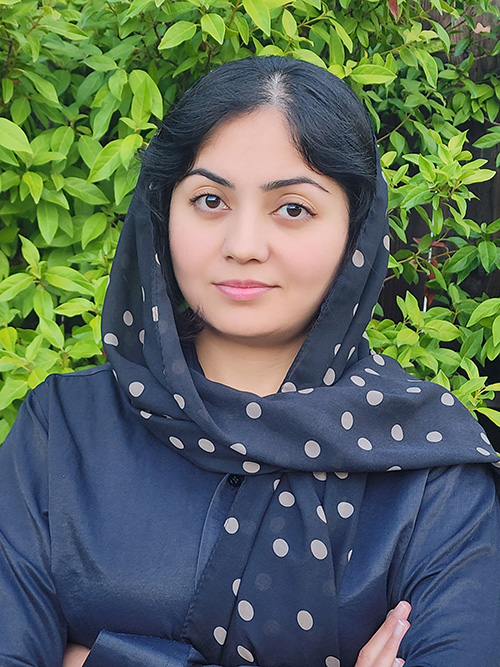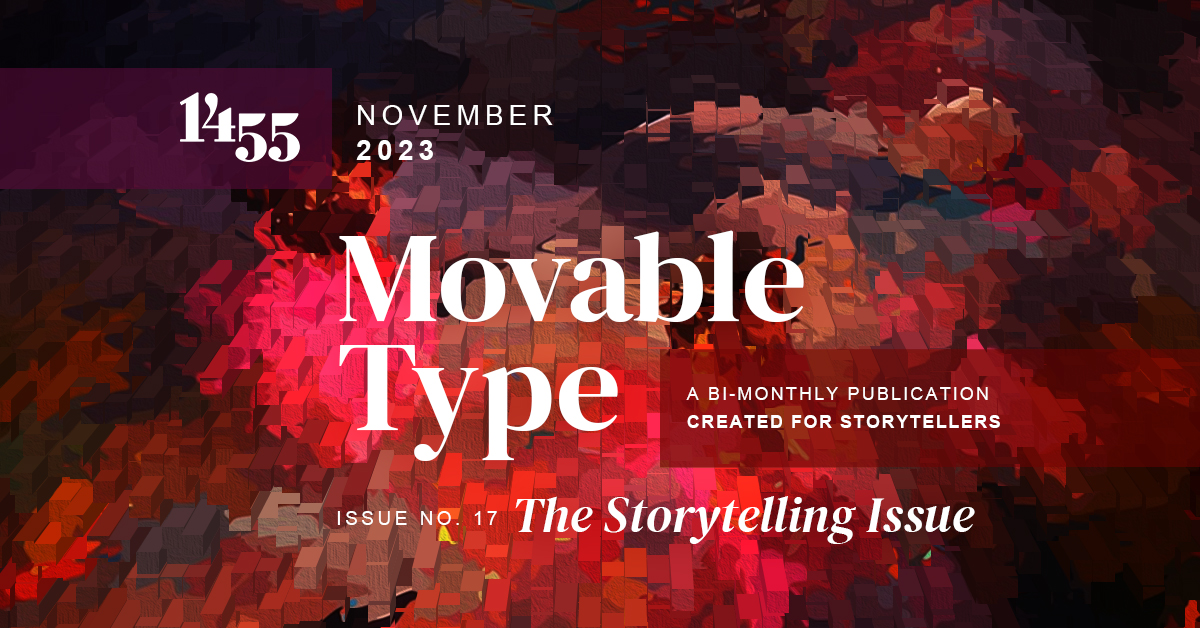Farangis Elyassi
The Emergence of Power
Translated from the Dari by Shekiba Habib
It was a strange night for me. I didn’t know what to put in the suitcase. Different questions kept popping into my mind. How much clothing should I pack? How long would I be there? Would I need shampoo, soap, masks, disinfectant and the like? I decided to take them just in case. After all, what if I needed them and didn’t have them? The only thing I knew was essential was my laptop.
My eyes were wet every few seconds. I wished that my mother were with me so I wouldn’t be so worried. The frown on my husband’s face clearly expressed his inner anxiety. He sat next to me, touched my hand and said softly: Shall we go?
Without saying a word, I got up, grabbed my shoes, opened the door and stood outside in the courtyard waiting for my husband. He brought my suitcase, mobile charger and laptop. We left the house and went to the parking lot. When we reached the car, my husband put our bags on the ground and opened the door for me. I sat down very slowly and quietly. He closed the door, loaded the suitcases and got in.
On the way, even though my husband was driving, I held his hand tightly. Normally when I did this, it meant that we were both happy. This time, however, we were both totally silent, our minds elsewhere.
After twenty minutes, we reached our destination. It was 8:20pm. We both entered the building. I was taken to the third floor, went into room number 2 and waited alone. My husband finally entered the room. After a moment of silence between us, I asked him: Is there any news?
He looked at me and said: No, I watched the news just a few moments ago. It would be better if you focused on your health and get other thoughts out of your mind.
But I was not the kind of person whose heart could be calmed.
* * *
Yesterday’s news weighed heavily on my mind; the Taliban had gone to the houses of single girls over the age of twenty to marry them, and had taken away and brutally tortured men who had worked with foreign countries when the Republican government was in power. I couldn’t stop thinking about my two sisters, both over twenty and single, and my brother, who had worked with foreigners for many years.
Over the past month, my husband and I had sat at the table for dinner every night just looking at the food, our thoughts so scattered that we had no appetite. We did not talk to each other except about the situation in Afghanistan. Most of the time we were busy talking to and checking on our families. As well as following the news on TV incessantly, they would give us more details about the situation. Sometimes we both cried – but secretly, without telling each other. We stayed awake at night with our phones in our hands. When I talked to my siblings, my mother would shout at me in the background, asking me to sleep because it was night here and day there. But I, with terrified heart and scattered soul, couldn’t breathe easily, even for a moment.
Those were the days when I should have been out shopping and celebrating, but there was no way to get rid of the negative thoughts. Sometimes I remembered my father’s advice that I should be patient and strong in the face of problems. But when a calamity befalls you and you have nothing except anxiety, what does it mean to be patient?
I dreamed that my little sister was very upset. She was saying that her throat was torn from the inside and hurting a lot, she felt like it had a wound in there. My brother was sitting beside her wanting to help her, but he couldn’t. I woke up suddenly, read some Surahs and prayed for her safety. But I was still so worried that I picked up my phone and called her. She said why did you call in the middle of the night? I am fine, do not worry just go to sleep and relax. I hung up the phone and tried to, but various thoughts made me more and more anxious, just like every other night.
I kept thinking Maybe I made a big mistake when I left my family in Afghanistan and came to the America a month and a half ago. I wish I’d stayed with them, then maybe I would not be so worried today. I remembered the great saying that the elders had: It is better to be in trouble than to be outside of it and just a viewer. I was a viewer now, and it was melting my heart and body, just like a candle melts and melts and has no way to save itself. I didn’t know why everybody had wanted us to come back here. To be safe? So now what? I am safe, but what about others left behind?
*
That was the last night of the Republican government in Afghanistan and the very next day the Taliban came into power. We heard at midday. Just like every other day, my brother and elder sisters were at work. When I saw the news I called them, but nobody answered. I called my younger sister. She was terrified and was just standing by the window waiting for them to arrive home. We both were crying and hoping that they were safe. It took them three hours to get back home because all the roads were blocked.
That was a difficult night for all of us. The Taliban launched airstrikes all over Kabul. Everyone sat in the hallway, far away from the windows so that nobody would be hurt if a bullet hit the glass. When I talked to my mother on the phone, I could hear the sound of children crying in the background, scared of the endless aerial firing. She tried to play it down: Don’t worry, my daughter. Your maternal uncle’s children have come to our house today. They got into a fight while playing. That’s why they are crying. But I knew that they were scared of the sound of the bullets.
Yet I also tried to calm my younger sister with similar words: Do not worry it is just airstrikes, they are not going to hurt anybody. She, more realistic than me, replied with heavy heart and shaky voice: What’s the difference? All kinds of strikes are terrifying. I feel like somebody is holding my throat, it is getting harder and harder for me to breathe in this place.
At that moment, I felt like the bird whose gullet has been cut by the butcher before it is thrown into a bucket. With all the pain the bird feels, still it tries to flee, pushing itself to the walls of the bucket, but there is no way out and the bird dies right there. I am in the bucket too and there is no way out. There was nothing I could do except pray.
*
The door opened and the doctor came in. After an examination, the doctor asked the nurse to give me some medicine. It kicked in within half an hour. I began to feel pain around my tummy, which was increasing every minute. I couldn’t sit anymore, so I put my laptop aside and lay down on the bed.
It was then that I remembered the words of Bibi Haji. The old woman had said: My daughter, don’t forget to pray during your labour pains because, at that time, whatever you ask from God shall be granted. I started to pray. I asked God for refuge for my sisters, good health for my brother, peace and well-being for my mother, a tranquil heart for my husband, good health and life for my coming child, rescue from war for my compatriots, peace for my homeland and, for myself, family reunion. The more I felt pain, the more I prayed and whenever I screamed out in pain, I felt a greater chance for my prayers to be accepted.
After twelve hours, the doctor came for a check-up and said too much time had passed, they had to operate. They gave me some anaesthesic so that I wouldn’t feel the pain of the surgery.
*
Afterwards, I realised that I had continued to pray until I heard the sound of my baby crying. After a long and hard fight, I felt like somebody had come in and taken me out of that bucket where I had been stuck just like the bird; but, although my throat still had been cut, I could breathe and would live.
The doctor picked up my baby, brought him a little closer to me and showed me his lovely face. I felt as if God had given me the most beautiful gift. My tears of sadness turned into tears of joy. I said to myself, if God can give me this heavenly angel, He can surely do anything. I should not worry anymore because God is with me with all His power, and He loves me.
I named my son Zwaak Zuhoor. Zwaak means power and Zuhoor means emergence/appearance because, from the very first day he was born, he gave me the strength to put my woes aside. He enabled my lips, which had not smiled in a long time, to curve upwards again despite everything. I sometimes still slip into the same feeling of helplessness, but now I also feel hopeful because there is someone who can give me moments of happiness. He is like an antidepressant for me. Finally, I understand what my father meant about being patient: One day it will all be okay!

About Farangis Elyassi
Farangis Elyassi is a lawyer by profession and a writer by passion. She left Afghanistan a few days before the fall of Kabul, as she and her husband already had green cards. She works with law enforcement in California. She is one of the authors in the anthology My Pen Is the Wing of a Bird, New Fiction by Afghan Women, (MacLehose Press, 2022). She was also part of the writer’s group who created, Rising After the Fall, (Scholastic, 2023)

ABOUT UNTOLD NARRATIVES
Untold Narratives is a small social enterprise that works with writers marginalised by conflict or community. Based in the UK, Untold has been working with Afghan women writers since 2019. The writers collaborate with international editors and translators in an intensive, virtual, editorial process to develop their work; share their stories with wider communities in their own languages and grow global audiences in translation. Recent publications include, My Pen Is the Wing of a Bird, New Fiction by Afghan Women (MacLehose Press, 2022).
As Kabul fell to the Taliban in August 2021, many of these women writers left Afghanistan to start new lives as refugees in other countries. Farangis Elyassi and Fatima Saadat were the first of this writers’ group to leave Afghanistan. Two months later Marie left, courtesy of the international organisation she was working for. They continue to stay connected and develop their craft with Untold, from their new homes in the USA and Germany. Parand has remained in Afghanistan, writing under a pseudonym to protect her safety.
All four stories are inspired by real life and reflect the breadth of the experience of Afghan women writers, living all over the world, forging new lives. These pieces were developed this year, through the Paranda Network, a global initiative from Untold Narratives with support from KFW Stiftung to connect and amplify the voices of writers from Afghanistan and those in the diaspora.


